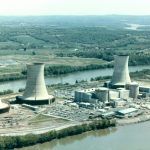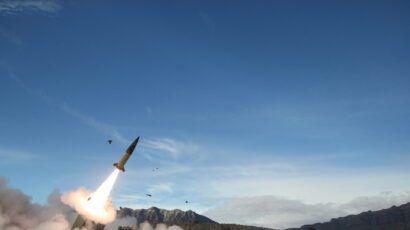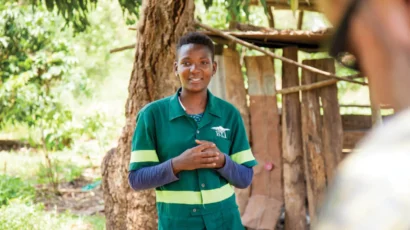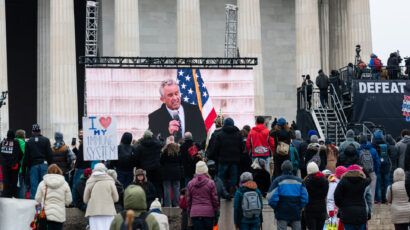The struggle for a nuclear-weapon-free zone in Central Asia
By Togzhan Kassenova | December 22, 2008
When Kazakhstan’s Parliament ratified a treaty establishing a nuclear-weapon-free zone in Central Asia earlier this month, the effort to ban nuclear weapons from the region took its final step. Throughout the Cold War, Central Asia had been the epicenter of the Soviet nuclear testing program–with the Soviet military conducting 456 nuclear tests in Kazakhstan alone. Appropriately then, the treaty was signed by representatives from Kazakhstan, Kyrgyzstan, Tajikistan, Turkmenistan, and Uzbekistan in September 2006 at Semipalatinsk, the main Soviet test site in Kazakhstan. (Kazakhstan was the last country to officially ratify the treaty, which only now awaits the Kazakh president’s signature.)
Several features make the Central Asian nuclear-weapon-free zone an important contributor to disarmament and international security. First, after the Cold War ended, Kazakhstan possessed numerous Soviet nuclear weapons within its borders, and to some extent or another, each of the Central Asian republics had components of the Soviet nuclear complex within their territory. While they relinquished all aspects of those programs, the nuclear-weapon-free zone obligates them to additional disarmament responsibilities and obligations, including adherence to the International Atomic Energy Agency’s Additional Protocol, the Comprehensive Test Ban Treaty, and the Convention for the Physical Protection of Nuclear Material.
The establishment of a nuclear-weapon-free zone in Central Asia also signifies the creation of a disarmament “pocket” in a volatile region of the world where nuclear ambitions are running high and proliferation dangers are significant. For instance, Central Asia borders two recognized nuclear powers (Russia and China) and is in close proximity to two other countries that possess nuclear weapons (India and Pakistan). Nuclear aspirant Iran is nearby as well. In addition, it should encourage the better patrol of established drug smuggling routes originating from neighboring Afghanistan that some in the international community worry could be used to move nuclear material.
Plus, more broadly, the establishment of a nuclear-weapon-free zone in Central Asia is a practical step toward the nuclear-weapon-free world that former secretaries of state George Shultz and Henry Kissinger, former Defense Secretary William Perry, former Sen. Sam Nunn, and others have been advocating for.
Therefore, it’s rather surprising that despite all of these benefits, the effort to create a nuclear-weapon-free zone in Central Asia has been an arduous one that has encountered many stumbling blocks along the way. In all, it took 15 years for the zone to become official.
Although public statements by the presiding nuclear weapon states (the United States, Russia, Britain, China, and France) indicate that they support nuclear-weapon-free initiatives in theory, their actions when these initiatives are proposed seem to prove otherwise. Of the three active nuclear-weapon-free zones (Latin America and the Caribbean, the South Pacific, and Southeast Asia), only the Latin American and Caribbean zone has received support from all five of the nuclear states. None of these states can veto a treaty establishing a nuclear-weapon-free zone, but they participate in so far as they enter a legally binding pledge not to threaten or attack such zones with their nuclear weapons (by signing appropriate protocols to the treaties). Thus far, the Southeast Asian zone has received zero signatures from the nuclear weapon states, and the United States has yet to ratify the relevant protocol for the zone in the South Pacific.
Mindful of the lack of eagerness to previous nuclear-weapon-free zone treaties and hopeful that a compromise could be reached, the Central Asian states involved the five nuclear states in the process long before a final draft was ready. While they were able to secure Russian and Chinese support, the United States, Britain, and France were vocal in their opposition from the draft stage of the treaty all the way through to its final text.
Washington, London, and Paris specifically objected to two parts of the treaty–provisions governing the transportation of nuclear weapons and materials through the zone that in their opinion, were not clear enough, and the impact of a nuclear-weapon-free Central Asia on the 1992 Commonwealth of Independent States Collective Security Treaty that Kazakhstan, Kyrgyzstan, Tajikistan, Uzbekistan, Armenia, Belarus, and Russia signed to require each of those countries to offer all “necessary assistance, including military [assistance]” if one of them comes under attack.
To address this latter concern and still protect their security collective, the Central Asian republics inserted careful language into the nuclear-weapon-free treaty that allowed them to keep their defense agreement but not allow any actions that would be contrary to the main principles of a nuclear-weapon-free zone (i.e., deployment of nuclear weapons on their territory). This didn’t appease the Western nuclear weapon states, however, who are still wary and continue to refuse to give the treaty their blessing. It doesn’t seem to bother Washington that its current position appears to contradict statements made by its delegation to a 1997 conference on the establishment of a nuclear-weapon-free zone in Central Asia: “[T]he establishment of [a] zone should not disturb existing security arrangements to the detriment of regional and international security or otherwise abridge the inherent right of individual or collective self-defense guaranteed in the U.N. charter.”
A continuing lack of support from the United States, Britain, and France only reinforces the belief on the part of non-nuclear weapon states that the nuclear weapon states not only lack an interest in their own disarmament but also block important disarmament initiatives of others. In relation to the Central Asian nuclear-weapon-free zone, I will charitably describe the actions of the three Western nuclear weapon states as inappropriate. They have consistently opposed language that would allow for the initiative to be reviewed under Nuclear Non-Proliferation Treaty (NPT) guidelines and by the U.N. General Assembly. Moreover, the United States has placed pressure on the United Nations to withhold its support for the treaty. And language used by the three opposing nuclear powers in communication with the Central Asian states was so dismissive that some who partook in the discussions described the three nuclear weapon states as behaving as “nuclear royalty.”
Such negativity and obstruction in the face of initiatives seeking to curtail nuclear weapons goes against the stated aims of the NPT. Given President-elect Barack Obama’s stated position in support of nonproliferation and multilateralism, there’s a cautious sense of optimism that his administration will extend support to nuclear-weapon-free zones such as the one in Central Asia.
Most certainly, a nuclear-weapon-free zone in Central Asia supported by all five of the nuclear weapon states will send a strong message to other regions that might consider following suit, such as the Middle East. Their support would also demonstrate that the nuclear club respects universal disarmament and nonproliferation norms and values–the same respect they expect from every other nation.
Together, we make the world safer.
The Bulletin elevates expert voices above the noise. But as an independent nonprofit organization, our operations depend on the support of readers like you. Help us continue to deliver quality journalism that holds leaders accountable. Your support of our work at any level is important. In return, we promise our coverage will be understandable, influential, vigilant, solution-oriented, and fair-minded. Together we can make a difference.
Topics: Nuclear Weapons, Opinion














